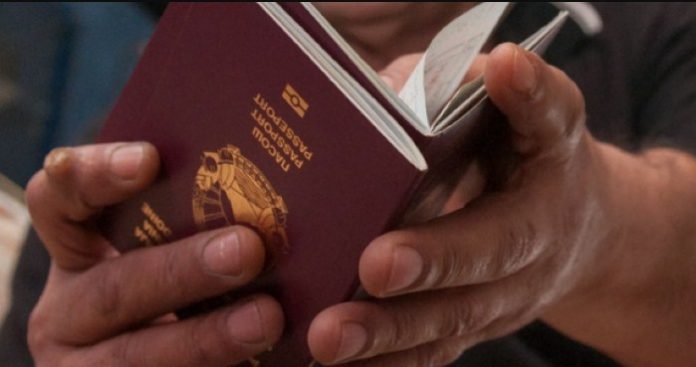Two ethnic Albanian political parties in Macedonia have submitted a joint proposal to amend the Law on Citizenship in Macedonia, raising fears that the government is getting ready to give up to 70,000 Kosovar Albanians Macedonian citizenship.
The Alliance for Albanians and Alternative’s proposal come only months before the first planned census in Macedonia since 2002, raising speculation that the Zaev government has made a back door deal to remain in power through Kosovar Albanian votes.
The proposal was met with strong reactions by several political figures in the country. MP Pavle Trajanov, leader of Demokratski Sojuz (Democratic Alliance) which is part of the SDSM-led coalition, commented that the proposed amendments aim to fast-track the recognition of citizenship status of more than 70,000 people who can “prove” they’ve been residents of Macedonia.
Justice Minister Bojan Marichik denied having information that the Government is considering to propose or support a Law that would grant Macedonian citizenship to persons who haven’t been able to make that claim due to the breakup of the Socialist Federative Republic of Yugoslavia in 1991. (?)
Marichik did not confirm or deny that on November 25, two opposition parties of the Albanian bloc had submitted a proposal for changes in the Law on Citizenship to the President of the National Assembly, Talat Xhaferi. The main coalition partner of SDSM, the Democratic Union for Integration (DUI), has stated it supports the proposal.
The proposal echoes a similar development in the early 90s when the SDSM Government is alleged of granting over 100,000 Macedonian citizenships to ethnic Albanian residents in Kosovo. Political commentators claim SDSM was able to hold on to power until 1998 thanks to the votes received by these new Macedonian citizens.
According to the proposal, the amendments will enable more than 70,000 people to claim citizenship by proving they had resided in the country for eight years prior to the dissolution of Yugoslavia in 1991. The exact method to prove residence is dubious as the required proof is only through the support of two witnesses to verify those claims. This opens to door to mass manipulation and a change in the ethnic structure of the country.
Alliance for the Albanians and Alternative are proposing that with the changes in the Law, the applicant who receives Macedonian citizenship should be able to demonstrate knowledge of “at least one of the official languages of the Republic of North Macedonia, to the degree that the person can easily communicate in his or her environment,” which makes knowledge of the Albanian language the only prerequisite in that regard.
Member of Parliament Pavle Trajanov says that granting of citizenship is “regulated by international conventions” and that “countries have a rigid approach in the recognition of a citizenship status by requesting identical conditions that must be fulfilled by the applicant.”
The leader of the opposition party Levica, Dimitar Apasiev, has issued a reaction that this request by the leaders of the Albanian opposition bloc, Zijadin Sela and Afrim Gashi, is the product of “political bargaining they have concluded with the governing majority, for the purpose of achieving the quorum that is needed in order to vote for the daily agenda of the Parliament session.”
Apasiev claims that the ruling majority has accepted the “chauvinistic proposal by a summary proceeding, which enables, in an artificial way, 70,000 residents of Kosovo to become citizens of Macedonia.”
Some of the changes that will become part of the amendments to the Law on Citizenship with the voting of the proposal in Law are:
Article 2 will be updated with paragraph 3 which enables persons who can prove their residency in the Republic of Macedonia at the time of the proclamation of independence, in accordance with this Law, can acquire a citizenship status in the Republic of North Macedonia.
Article 10 will enable persons up to the age of 25 to apply for and receive Macedonian citizenship if they reside in the country for one year following a prior termination of their Citizenship due to emigrating to another country.
Article 8 proposes for emigrants who arrive to Macedonia from outside, as well as their first and second-generation offspring, to be given citizenship status even if they don’t fulfill items 2 and 9 of article 7 paragraph 1.



